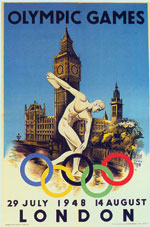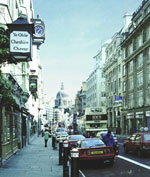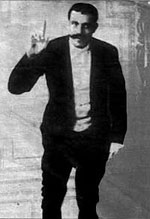Need a new writer? Send for a supersub
‘Bill Bryson is laying down his pen and retiring from books’ Ben Macintre wrote in The Times on October 16 2020. The remainder of this entertaining piece continued as follows:
The funny, insightful, amiable, furry and hugely popular American writer will be missed, and nowhere more than here, for he is an alumnus of that unsung university of literary talent: The Times subs’ desk.
Sub-editors are the boiler room engineers of newspapers, the experts who take out the mistakes, fit the headlines, correct the spelling, improve the grammar and frequently save people like me from looking extremely stupid. They can be pedantic. They are essential. They love words. And they sometimes emerge as great writers.
Sub-editors get an unfairly bad press. In his novel Towards the End of the Morning, former journalist Michael Frayn described the sub’s job as: “Check all facts and spellings. Cut the first and last sentences and any adjectives. And remove all attempts at jokes.”
This is a calumny. Bryson was a sub on the business section of this newspaper for several years in the early 1980s, and later described the experience as ‘the best way to learn how to become a writer.’ Among his predecessors were Jan Morris, then James, the travel writer and historian, a sub-editor on the paper’s home and foreign desk in the early 1950s.
Not everyone made the grade. Charles Dickens never got through the door: his uncle, John Henry Barrow, was on the staff of the paper and tried to get his ‘clever nephew’ a job but was told there was ‘no vacancy’. Rudyard Kipling was a sub on the rather less distinguished Civil and Military Gazette in British India in the 1880s. Guy Burgess did a trial as a sub-editor on the home desk in 1935, but was not offered a job — a decision that the editors would have taken even faster had they known he was already a Soviet spy.
But the most celebrated Times sub-turned-writer was Graham Greene, who joined The Times in 1926. The world of the sub-editor was somewhat different then. Tea and cake were laid out by servants at exactly 5 every afternoon. Greene’s colleagues included a war veteran with a metal plate in his head, ‘a small elderly Scotsman with a flushed face and a laconic humour [who] drove a new sub-editor hard with his sarcasm’, and a young man named Stokes with a morbid fear of sardines who ‘was plump & drank a lot of olive oil to keep him so’. Greene’s boss was so polite he apologised every time he asked his underling to do any work. In his copious free time, Greene worked on his first novel, The Man Within.
‘I was happy on The Times, and I could have remained happy there for a lifetime,’ he wrote 40 years later. ‘I remember with pleasure the slow burning fire in the sub-editors’ room, the gentle thud of coals as they dropped one by one in the old black grate.’
He got through his subbing shift with the help of two kippers, a pot of tea and a slice of syrup roll. Greene believed that the skills he learnt as a sub were central to his writing: ‘I can think of no better career for a young novelist than to be for some years a sub-editor on a rather conservative newspaper,’ he wrote. ‘He is removing the clichés of reporters; he is compressing a story to the minimum length possible without ruining its effect.’
In December 1929, with a novel published, Greene announced he wanted to write fiction full-time. The editor was incredulous that ‘one of our best and quickest sub-editors’ wanted to leave, and tried to tempt him to stay with the promise that he would one day be allowed to write a third leader. Fifty years later, Greene reflected wryly that if he had given in to the blandishments of The Times ‘my whole life would have been changed disastrously for the better’.
The subs’ bench occupied by Bryson in the 1980s was also a leisurely place. In Notes From a Small Island, he wrote that that “on the Company News desk where I worked as a sub-editor, the five-man team would wander in about two-thirty and spend most of the afternoon reading the evening papers and drinking tea while waiting for the reporters to surmount the daily challenge of finding their way back to their desks after a three-hour lunch … At about half-past five, we would engage in a little light subbing for an hour or so, then slip our arms into our coats and go home.”
Yet Bryson credits his success as a writer to his years as a sub: ‘Your focus is to get rid of flabbiness and try to compress things into the simplest, most direct way of expressing them.’
That pithiness was on display in Bryson’s hilarious account of The Times in the grip of the print unions. Vince, a member of the National Society of Operative Printers and Assistants (NATSOPA), presided over the wire room: ‘5ft 6ins of wiry malevolence in a grubby T-shirt’. Every evening, Bryson would nervously knock on Vince’s door to ask if he might find the Wall Street report wire copy ‘among the reams of unwatched paper tumbling out of his many machines’?
‘I don’t know wevver you noticed,’ Vince would say, ‘but I’m eating pizza.’
‘Well, then, how about if you just tell me where it is and I get it myself?’
‘You can’t touch nuffink in here, you know that.’
The all-powerful unions, the kippers and the coal fires are no more, but the craft of subbing remains as vital as ever.
So, as you read these words, remember the sub-editor who arranged them there, and who so often makes bad writing gooder.
*****
 The photographs of the 1948 Olympics evoke an earlier, simpler sporting world: unglamorous, unsophisticated, threadbare and yet, in its post-war, chin-up, make-do spirit, profoundly moving. The athletes had knobbly knees and bad teeth. They ran in homemade shorts on a converted dog-racing track lined with cinders collected from the domestic hearths of Leicester. They brought their own towels, ate cheese sandwiches and slept in wooden huts; they competed ferociously to win medals, and to celebrate peace.
The photographs of the 1948 Olympics evoke an earlier, simpler sporting world: unglamorous, unsophisticated, threadbare and yet, in its post-war, chin-up, make-do spirit, profoundly moving. The athletes had knobbly knees and bad teeth. They ran in homemade shorts on a converted dog-racing track lined with cinders collected from the domestic hearths of Leicester. They brought their own towels, ate cheese sandwiches and slept in wooden huts; they competed ferociously to win medals, and to celebrate peace.
The London Olympics of 1948, staged just three years after the end of the Second World War, was an avowedly political event. The conflict had threatened to kill off the competition, and war coloured every aspect of the occasion. Captured German POWs laboured to build the facilities. Many athletes had seen wartime service and some bore the physical scars. This was the DIY Olympics, scraped together from whatever could be found, adapted or borrowed.
At Richmond Park, 2,000 athletes slept on iron bedsteads in wooden army huts. Many competitors sewed their own kit. Basketballs, footballs and boxing gloves were sold off afterwards to recoup some of the cost. Milk, eggs and cheese were still rationed, although Olympians were permitted twice the normal calorific ration. The first chill of Cold War was in the air, but the focus was firmly on healing wounds of the last war. On entering Wembley, spectators were greeted with the words: ‘The essential thing in life is not conquering but fighting well.’
The message was clear: had the Allies not fought well, there would have been no Olympics. The long-distance runner Emile Zátopek caught the emotive significance of these cheap, cheerful, history-changing Games: ‘After all those dark days – the bombing, the killing, the starvation – the revival of the Olympics was as if the sun had come out.’
The very frugality of the ‘Austerity Olympics’ was a repudiation of Hitler’s Olympic propaganda extravaganza in 1936. Britain put together an Olympics with what was left after Hitler had done his worst.
Assembled from shreds and patches in a spirit of optimism and friendly international rivalry, the 1948 Olympics mended the soul of sport.
One day while editing The Sun I came to a momentous conclusion about my colleagues: they weren’t academic enough. Glancing round the newsroom I simply couldn’t see University Challenge material. There wasn’t much evidence of Blue Peter material either.
A revolution was needed. A new hiring policy would be adopted to raise the IQ in the newsroom. Out would go the traditional employment pool of Britain’s No 1 selling newspaper, ie, the devious, the deceitful and those with alcohol-dependency issues. Instead, from now on, all the new reporters would come from Oxbridge. It would be brains, brains and more brains.
The Sun, as you may have already concluded, is not the natural dropping off point for academia, but slowly, as word spread, the firsts and PhDs began making their way to my office. I hired them in a matter of seconds. Balliol College, Oxford, you’re in. Trinity, Cambridge sign here, Magdalen, Oxford, welcome aboard. Satisfied that my bold move would take The Sun to a higher plain I waited for the results.
They were not forthcoming. In fact, very little emerged from my new hirelings. Most disappointing. I had to get to the bottom of this. It became clear that with their keen and analytical minds they had made a fatal mistake — they had continued investigating every story to the point where they had satisfied themselves that there was no story at all. This would not do.
I called in one of the super-brains and explained a philosophy that had served me and the paper reasonably well over the years. The reporter leant forward with an earnest look as I told him the secret: if a story sounded true it probably was true and therefore should appear in the paper or there would be lots of white, unexplained spaces.
Whether it was my pep talk or the sense that The Sun was not for them I will never know, but over the months ahead they slowly headed for the door never to return.
I had only one O level and it was a massive disappointment that I was not to be surrounded by clever clogs, but we were now short of reporters and therefore a fresh approach was needed — one that I could not pass by the HR department.
From this day forth, we would employ only women with large breasts. You may not be all that surprised that this initiative was a major success. It became clear that a grisly and overworked chief superintendent at a murder scene responds more warmly to questions from a lady with a hint of cleavage than a balding newshound with four pints of Boddingtons on his breath. And, frankly, who can blame him.
Even to me it came as something of a shock that breasts beats brains, but you have to embrace change, don’t you?
So it was with some sense of trepidation that I arrived in Cambridge the other day to see a new tabloid that was entirely run by the brains department. It’s called The Tab, an online newspaper, aimed at the 15,000 students in the city.
The speed with which The Tab brings university news to the students gives it the edge over its print rivals Varsity and the student union newspaper. Competition has reached the kind of open warfare witnessed only between Lidl and Tesco.
One Tab writer told me: “I used to be quite friendly with the editor of Varsity, but once we started Tab she cut me dead in the street . . . In fact she turned her head into the wall the other day.”
(I used to hate the Editor of the Daily Mirror in the same way when he sold four million a day and we were the underdog. Now that The Sun is top dog by many millions while the Mirror manages only just over a million a day, I feel vaguely sorry for him for having such a bloody awful job and also being forced to support Brown every day. Life doesn’t get much worse than that.)
The fascinating thing is that I didn’t have to lecture the team on the joys of tabloid — it was already in their genes. They knew what their audience wanted — the secret of The Sun’s 40-year success.
So as I said farewell to Cambridge I realised that I made a mistake all those years ago — I should have persevered with the brains. They are the tabloid titans of today — and tomorrow.
And yet . . . By the time I got home, I found myself wondering how these youngsters would deal with the rough and tumble of real politics — “the dark actors playing games”, as the late weapons expert Dr David Kelly so graphically put it.
John Major once asked me just before the paper was to be printed, how we were going to report Britain’s exit from the ERM, which was going to cost our country around £5 billion, thanks to his ineptitude.
I told him we were going to pour a bucket of shit over him. My sense is that the Cambridge mob are too middle class, too well-mannered, too educated to pour anything but a bucket of Puligny-Montrachet over anyone’s head. That’s their one drawback to a life in the tabloid arena. They were simply too nice. How awful.
Kelvin sporting a
wry, philosophical look
Barnsley: A Monty Python fan came up with something completely different when he appeared before Barnsley magistrates. When the clerk to the magistrates asked the man for his name, he replied: ‘Mr Two Sheds Luxury Yacht Patang Patang Biscuit Barrel Community Care Over The Top Jackson.’ Magistrates were not impressed and remanded him in custody for four weeks.
 Are you sitting comfortably? Then this may shock you…
Are you sitting comfortably? Then this may shock you…
Winnie the Pooh has been branded fat, unfit, and self-indulgent – by a honey firm. Gales, who dropped Pooh from their product advertising, have now rejected an offer to back a musical based on A.A. Milne’s classic character because he is giving honey a bad name. The bear of little brain and bulging waistline, who for six decades has gorged on the sticky delicacy, is considered out of step with our health-conscious times. The snub – likely to shock residents of 100 Acre Wood – came when theatre producer Vanessa Ford approached Gales parent company Rowntree Mackintosh. She asked them to sponsor the music, which is set to come to the West End later this year.
‘They wrote back saying they felt the market for their product had changed, and they did not feel they could promote Winnie the Pooh when he looks as if he is self-indulgent and fat because of honey,’ said a bewildered Vanessa.
Vanessa, whose touring company is one of Britain’s most successful, said she considered her request to Gales perfectly reasonable. But the firm is adamant that these days honey should be portrayed as a natural, fitness-inspiring health food, and not the sort of delicious indulgence whose pursuit leads to rotund bears becoming wedged in rabbit holes.
‘We were astonished when they told us what they though of Pooh,’ said Vanessa. ‘It’s quite ludicrous.’
And in Pooh Corner, Fleming, Devon – the house where A.A. Milne’s 67-year-old son Christopher Robin lives – there was also regret that Pooh has become a victim of nouvelle cuisine and healthy living.
Mr Milne’s wife, Lesley, said: ‘He’ll be sad that Pooh is now thought too plump to be a West End star.’
Last night a Gales spokesman said: ‘We don’t really want to comment on this.’
But Miss Myra Ibbotson, of The British Dietetic Association said: ‘There’s no particular nutritional benefit in honey. It is high in calories.’
 A world survey by a French magazine says that the best friends of France are the English, which will surprise a great many Englishmen who think we hate each other. Noel Coward summarised the Anglo attitude to the French when he said: ‘There is always something fishy about them.’
A world survey by a French magazine says that the best friends of France are the English, which will surprise a great many Englishmen who think we hate each other. Noel Coward summarised the Anglo attitude to the French when he said: ‘There is always something fishy about them.’
The fact is that we don’t know them very well and what we don’t know we don’t trust. It is true we have often fought in the same wears. But the only time we came close to losing was when they were our side.
Maybe they do have the best wine, the most glamorous women, the cleverest cuisine and the most elegant style. But do they deserve any of them?
It is said that they cook while the British only open tins. But what do they cook? Snails (disgusting). Frogs legs (distasteful). And horses (barbaric).
They grow an apple to Golden Delicious which is green, not gold, and about as delicious as a ball of wool marinated in castor oil. What’s more, it’s putting our growers out of business.
And now we are told we are their best friends. It’s ridiculous. The only thing we’ve got in common is the English Channel. The English Channel.
* Written by Joe Haines
 Uncle Leib was what I called him. But he was known officially as Louis, referred to by his mother as ‘Lentchie’, by Livaks as ‘Label’ and Pollaks as ‘Libel’. If he had ever had his IQ tested, a record low score might well have been achieved.
Uncle Leib was what I called him. But he was known officially as Louis, referred to by his mother as ‘Lentchie’, by Livaks as ‘Label’ and Pollaks as ‘Libel’. If he had ever had his IQ tested, a record low score might well have been achieved.
He was nevertheless a compulsive reader in the same as others are compulsive eaters, drinkers or smokers. When I was a child, he read my comics. During my adolescence he read my Rover and Hotspur. While I was a student, he once went as far as to read part of Kant’s work on Categorical Imperative when there was nothing else to read after he had read Sporting Life.
He could never have been handsome, children often teased him about his features, although they loved him as he clearly loved them. They treated him as one of them. One of his other nephews had to be packed off to bed for calling him ‘Frankenstein’ to his face. To compensate for all this and as an extra bonus, Uncle Leib had been given a warm, golden heart as big as his enormous height.
I was just beginning my National Service and in the middle of square-bashing when he died. There is little of significance for me to remember of my two years in the RAF apart from the vaccination I was given on the day of my 21st birthday, the time I fell asleep while on sentry duty (punishable by death in time of war!) and the rather enjoyable week out of uniform on a model Leadership Course organised by the Rev I. Levy. But Uncle Leib’s death had repercussions he could never have envisaged.
The sad news was conveyed to me during one of my numerous phone calls home. The corporal in charge told me it might be a good opportunity to apply for compassionate leave. He understood that ‘your people’ go in for funerals in a big way and intimated that I would be missing something really special if I remained in camp. He offered me a form of application to put in to the CO.
My excitement was without bounds. The continual marching and drilling in frosty weather, the endless polishing of brasses and blanco-ing of webbing, being bullied by all above the rank of AC Plonk and looming above all, the assault course (some, we were told, had broken legs, arms or had died) on the following day contrasted in my mind with the prospect of a few days at home.
The words to put on the application form were not easy to find. It was all right as far as ‘I humbly apply to me Commanding Officer for compassionate leave to attend….’ But how to describe it? I could not tell anyone that, under Jewish Law, we tend to bury our dead quickly and that kaddish had already probably been recited at Uncle Leib’s graveside.
And what word in the English language (or any other language for that matter) can convey all that is implied by the shiva with its procession of well-wishing visitors, the expression reserved for such occasions, the faces of instant members of the family never to be seen at weddings and barmitzvahs, the shmaltz herrings, the baigels, to day nothing of the boxes of chocolates and cigarettes left half-guiltily in the hall for the benefit of the mourners?
There was only one word that came to my mind – after ‘…compassionate leave to attend;’, I honestly scribbled the words ‘the funeral celebrations of my late Uncle Louis.’ The corporal obviously thought it was the right word. He had visions of the bottles of whisky at an Irish wake.
He initialed the form which was then passed on to the sergeant, who uttered a vile string of obscenities about religion before adding his reluctant approval. Not long after, during drill instruction on the icy parade ground, the message came through. I was ordered to ‘fall out’ amid the groans of envy from the others. My application had been granted.
After a short, tearful but not unpleasant few days’ reunion with my family, I returned to camp. Not only had I missed the assault course, but somehow an entry had been made in the official record that I had passed as a ‘first class shot’ on the rifle range, without a shot being fired by me.
Uncle Leib would have been proud of me!
 For 14 July, the time when the Parisians give voice with pêtard and brass-band to whatever dry store of joy is still left in them, a publisher, M. Jean-Jacques Pauvert, has very appropriately produced a handsome tribute to one of the most celebrated noise-makers the European stage has ever known: M. Joseph Pujol. At the height of his career as a star of the Moulin Rouge Marcel Pagnol in his book ‘Notes of Laughter’ tells us that Joseph Pujol could draw matinee gates worth 20,000 francs, while Sarah Bernhardt the same week only manager 8,000. Eyewitnesses claim that he was one of the greatest amusers of all time. His career spanned more than 20 years.
For 14 July, the time when the Parisians give voice with pêtard and brass-band to whatever dry store of joy is still left in them, a publisher, M. Jean-Jacques Pauvert, has very appropriately produced a handsome tribute to one of the most celebrated noise-makers the European stage has ever known: M. Joseph Pujol. At the height of his career as a star of the Moulin Rouge Marcel Pagnol in his book ‘Notes of Laughter’ tells us that Joseph Pujol could draw matinee gates worth 20,000 francs, while Sarah Bernhardt the same week only manager 8,000. Eyewitnesses claim that he was one of the greatest amusers of all time. His career spanned more than 20 years.
Why then does the name Pujol mean nothing to us today? Because to perpetuate his name it is necessary to describe what he did, and for a couple of generations this simply could not be done in print. (Perhaps it still can’t.) Dear me, how styles of entertainment have changed! Pujol described himself as ‘Le Pêtomane.’ Not to beat about the bush Pujol’s talent was that he could fart like nobody else in the world, before, then or since.
He could fart tenderly (le petit pet timide de la jeune fille) or aggressively (le pet rond du macon) rapidly like a machine gun – or he could produced a deep, slow cannon-roar lasting up to ten seconds. He could give a very good account of a do ra me fa derriêre-wise, imitate a violin, a bass, or the timbre of a trombone.
Pujol was no scurvy, back-street, perverted farter. He only farted in the very best places, and for considerable sums of money. Eyewitnesses insist on the gravity and impassibility of his performance, and the essential seriousness of this father of ten buxom children.
In 1887, the year Mallarmê published ‘L’Apres midi d’une Faune’, Pujol, aged 30, appeared for the first time on a public stage in Marseilles. His talent had already been the envy of his schoolmates, the admiration of his regiment, and evoked the solicitous respect of his family. Within a week Marseilles, Paris, Brussels, North Africa, all over Europe Pujol presented an unchanging ritual. Dressed in a red coat and black satin knickerbockers, he would approach the ramp and announced gravely:
‘Mesdames, Mesdemoiselles, Messieurs, I have the honour to present to you a performance of petomania….’
He would then stoop and begin his finely graded escalating performance. In his history of the ‘Caf’conc’, Jacques-Charles describes the scene at the Moulin Rouge. ‘At first the audience would remain astounded. Then someone would be stricken with a crazy laugh. In a moment people would be howling and staggering with laughter. Some would stand paralysed, tears pouring down their cheeks, while others beat their heads and fell on the floor. Ladies would begin to suffocate in their tight corsets, and for this reason there were always a number of white-coated nurses in attendance.’
Mlle Yvette Guilbert wrote: ‘It was at the Moulin Rouge that I heard the longest spasms of laughter, the most hysterical cries of hilarity that I have ever heard in my life.’
The King of the Belgians travelled incognito to Paris for as private demonstration by M. Pujol.
But it was not only an audience in search of a belly laugh who flocked to see Pujol; the Academy of Medicine in Paris was, so to speak, hot on his tail. Pujol, partly to prove the authenticity of his performance (which he could hardly do on the stage of the Moulin Rouge) submitted to a number of elaborate medical examinations which are described in ‘La Semaine Medical’ of 1882 by a Dr Marcel Baudouin with a zest for enthusiasm for detail which unfortunately cannot be reproduced here.
Pujol finally broke with the Moulin Rouge and opened his own theatre, the Pompadour. Then, in 1898, the year Pierre and Marie Curie discovered radium, Pujol discovered that the Moulin Rouge were going to present a rival female pêtomanie. He brought an action for unauthorised imitation. Lawyers had to attend the theatre and note the range, quality and form of the lady’s performance. But before the cased actually came to court the lady was exposed as a fraud (she had whistles hidden in her skirts).
Pujol, who lived to be 88, was an outstanding example of man’s ingenuity in making the best of whatever gifts nature bestows – be they every so curious. With extraordinary courage, and by the sheer quality of his performance, he imposed the fart on a stupefied but defenceless Europe.
He was a star until 1914 when the countries of Europe decided to get together on a roaring orgy of petomania of their own which was no doubt distasteful to this gentle and scrupulous performer. (By the way, he claims never to have suffered from stagefright.)
How has his name come to light again? Simply because his family of honest bakers and masons in Marseilles were pained that their famous ancestor had become so neglected. Around 14 July (last year) they had the idea of appealing to a pair of well-known journalists on the ORTF pointing out the injustice that: ‘France has done nothing for the memory of its petomane!’
Now justice has been done. But, alas, given the standards of our time the tribute could neither be aural nor visual.

Fleet Street as it was
The takeover of the Daily Express by Trinity Mirror only produced one winner, the shrewd vendor Richard Desmond.
To some observers The Daily Express under Desmond’s management had effectively become the UKIP Daily News. While that may be unfair, the paper was certainly more right wing now than it ever was when controlled by its founder, Lord Beaverbrook.
Bringing both titles together under the same holding company – Trinity Mirror became Reach – was unthinkable in the 20th century. But as news is now dominated by the Internet, the sales and advertising revenue of the once all-powerful titles of the past have been in free fall and the impossible has become reality.
As Desmond departed, Express readers understandably feared that their beloved title would be hauled left by the Mirror, not so red as it was in the halcyon days of Hugh Cudlipp and Cecil King, but still clearly pink. A bigger threat than political allegiance was the jobs lost to make the takeover possible.
Britain’s national newspapers are being pushed towards extinction by information technology, fake news and Facebook. Publishers are forced to save money, so stories are frequently recycled without checking. So the fine reputation British journalism once had cannot be earned today. This makes it a good time to share a few cutting from the good bad old days.


